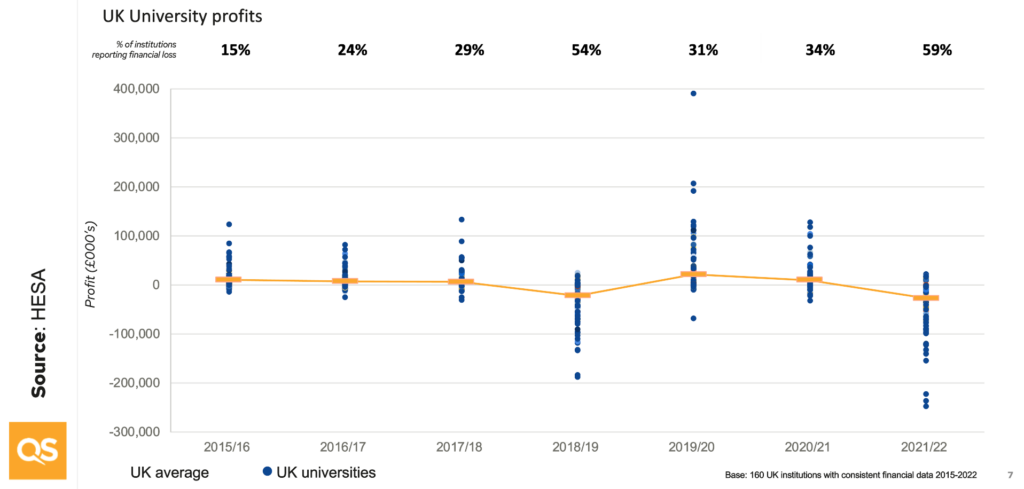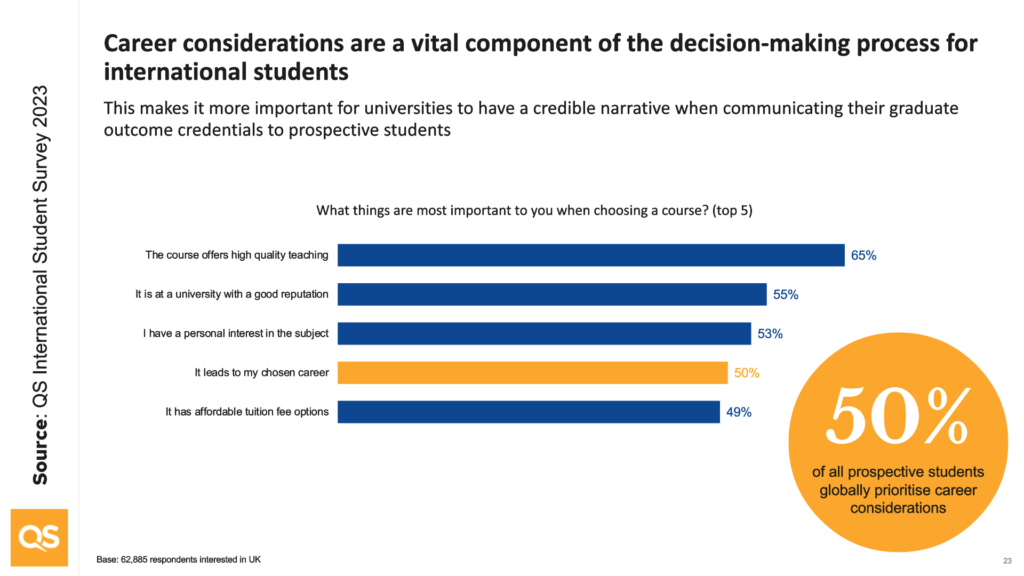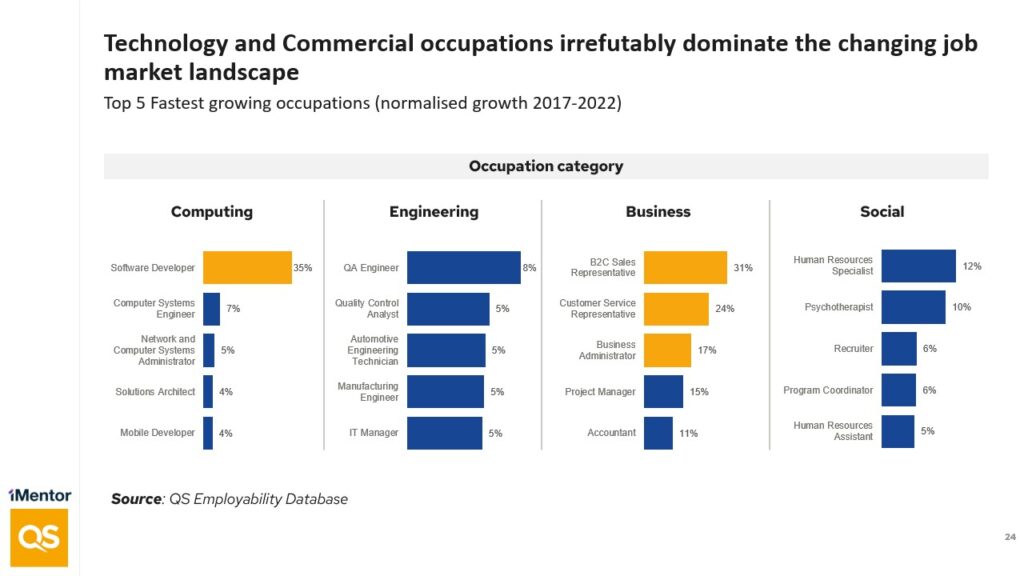
UK universities are facing financial challenges – while income from tuition fees has increased, it’s not enough to keep up with rapidly growing expenditure.
Also, with the UK government restricting the number of dependents international students can bring with them, students are more cautious about studying in the UK. It’s a challenge for institutions to attract and diversify their international student cohort in 2024.

At The PIE Live Europe, and later in a webinar, QS experts Kym Nguyen, Vice President of Student Recruitment, and Matteo Quacquarelli, Vice President of Strategy and Analytics, hosted a session titled ‘Thriving, not surviving: A data-led approach to recruitment resilience’. Attendees were taken through six key strategies UK institutions can leverage to enhance recruitment resilience.
In a recent article, we discussed how reputation can improve student recruitment, which is one of our six strategies. Let’s explore another one – the importance of student outcomes in your student recruitment strategy.
Students’ career considerations influence study decisions

With 50% of students prioritising career considerations, developing a clear employability strategy that focuses on the outcomes of their students is key for universities. This can be established by providing robust career services, work-placement opportunities, and connections with industry partners to ensure students are well-prepared for the workforce.
The job market is changing – adapt with it

According to the QS Employability Database, powered by 1Mentor’s data of over 200 million job listings, technology and commercial occupations are the sectors with the fastest growing number of jobs available.
There’s an opportunity for universities to rise to this demand. Institutions should consider adapting their curriculum and resources to meet the expansion of these sectors. This may involve introducing new specialisations, updating existing courses, and offering practical skills and experiences relevant to these fields. By doing so, universities can enhance the appeal of studying in the UK for students seeking career success.
‘Resilience’ and ‘communication’ have been identified as skills gaps among UK graduates, with North American graduates also performing better in these skills.
Source: QS Global Employer Survey 2023
Martin Serrano, co-founder and Director of Operations of 1Mentor, has consulted with numerous universities and found that many lack awareness of the specific skills sought by employers due to a lack of access to relevant data. Students may also struggle to effectively communicate the skills they acquire during their studies, further exacerbating the skills gap between students and businesses, therefore damaging universities’ graduate outcomes.
“It’s clear that something is missing in terms of articulating the skill the students are gaining and connecting that to their work life,” Martin said.
Explore fastest-growing subjects

Another way UK universities can adapt is by looking at the fastest growing subjects by referring to the QS World University Rankings by Subject 2024. The rankings serve as a valuable tool for universities to benchmark their performance, identify trends to implement strategic priorities and adapt to the changing landscape of higher education and research.
Student enrolments in agriculture-related programmes have increased by 24% year on year, while business and management, and computing has experienced a 20% increase. These popular subjects present an opportunity for universities in the UK to get ahead of the curve and meet the growing demand by offering more programmes in these areas.



